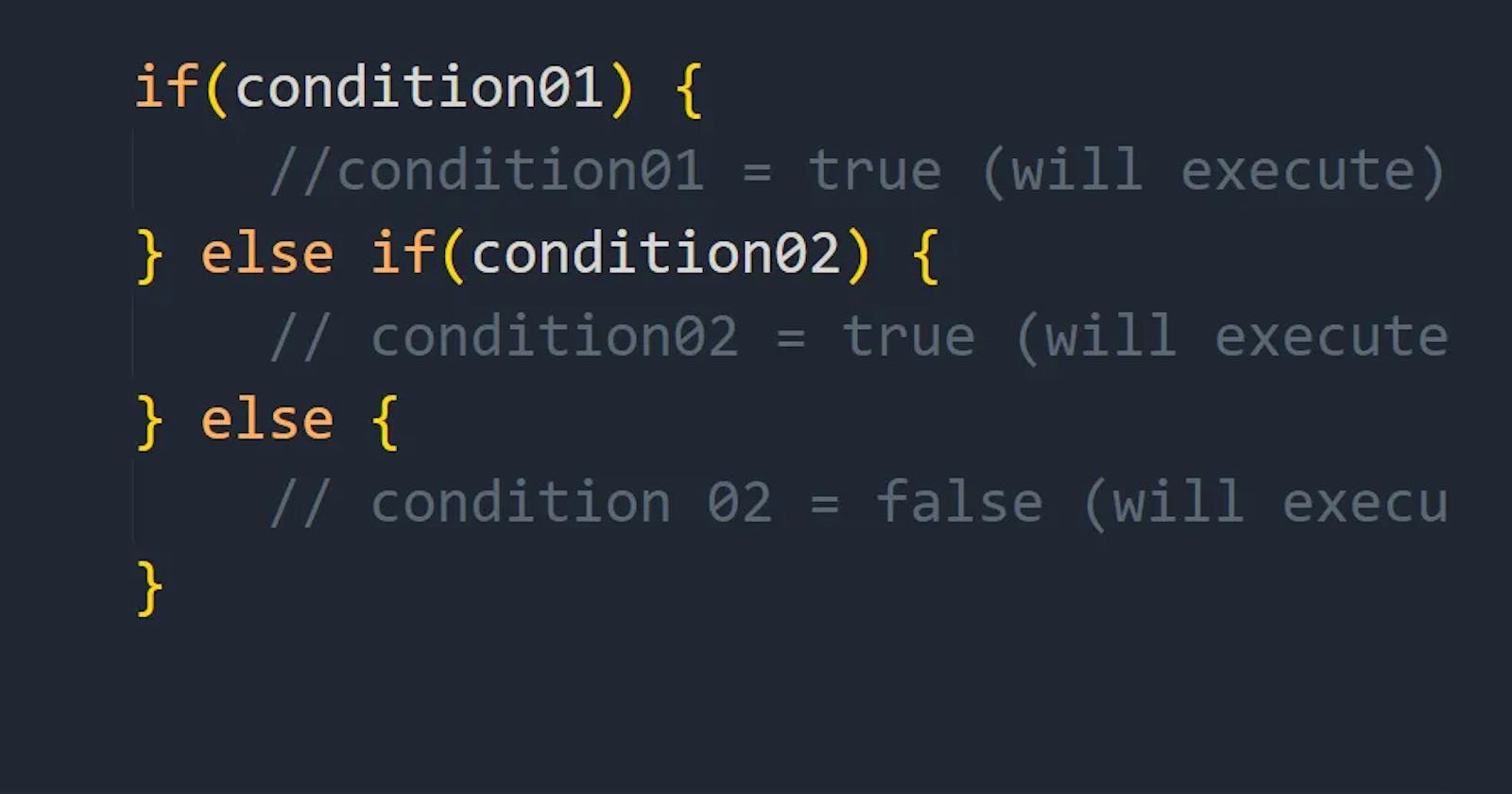Introduction:
Conditionals are a fundamental concept in programming languages, and JavaScript is no exception. Understanding conditionals is crucial for controlling the flow of your code and making decisions based on certain conditions. In this blog post, we will explore the different types of conditionals in JavaScript, their syntax, and when to use them. Whether you're a beginner or an experienced developer, mastering conditionals will empower you to write more efficient and logical JavaScript code.
Keywords: JavaScript conditionals, conditional statements in JavaScript, if-else statements, switch statements, ternary operator
Types of Conditionals in JavaScript:
if Statement:
The if statement allows you to execute a block of code if a given condition is true. It has a simple syntax:
if (condition) {
// code to be executed if the condition is true
}
You can also use the else keyword to provide an alternative block of code to execute if the condition is false.
if-else Statement:
The if-else statement extends the functionality of the if statement by providing an additional block of code to execute when the condition is false.
if (condition) {
// code to be executed if the condition is true
} else {
// code to be executed if the condition is false
}
else-if Statement:
The else-if statement is used when multiple conditions need to be checked sequentially. It allows you to chain multiple if-else statements together.
if (condition1) {
// code to be executed if condition1 is true
} else if (condition2) {
// code to be executed if condition2 is true
} else {
// code to be executed if all conditions are false
}
switch Statement:
The switch statement provides an alternative way to handle multiple conditions. It evaluates an expression and compares it with different cases. If a match is found, the corresponding block of code is executed.
switch (expression) {
case value1:
// code to be executed if the expression matches value1
break;
case value2:
// code to be executed if expression matches value2
break;
default:
// code to be executed if expression doesn't match any case
}
Ternary Operator:
The ternary operator provides a concise way to write conditional expressions with a single line of code. It follows the syntax:
(condition) ? value1 : value2;
If the condition is true, value1 is returned; otherwise, value2 is returned.
Engaging Visuals:
Include code snippets illustrating the syntax of each type of conditional statement.
Use visual elements like arrows and flowcharts to demonstrate the flow of code based on different conditions.
Display examples of real-world scenarios where conditionals in JavaScript are used.
Conclusion:
Mastering conditionals in JavaScript is essential for writing robust and dynamic code. By understanding the different types of conditionals, their syntax, and best use cases, you can make your code more readable, efficient, and easier to maintain. Whether you're building web applications, games, or any JavaScript-based project, mastering conditionals empowers you to write code that behaves intelligently.
